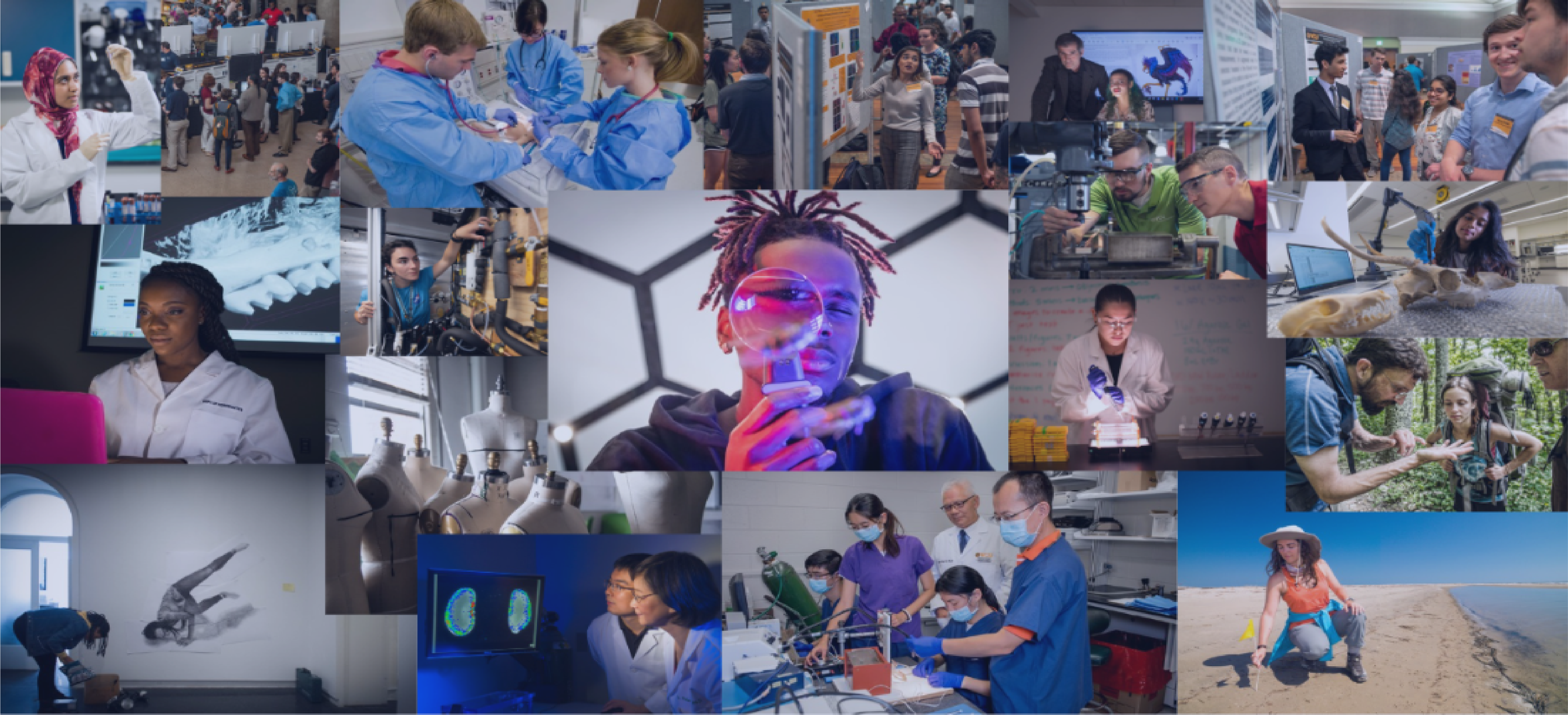
Explore, Engage, Excel
At VCU, undergraduates don’t just study discovery, they drive it. From your first year, you can join faculty-led projects that tackle real-world challenges, from cancer research to climate science. Build skills, explore big questions, and make an impact inside and outside the lab.
Undergraduate research, scholarship, and creative inquiry is fundamentally a pedagogical approach to teaching and learning. With an emphasis on process, CUR defines undergraduate research as: A mentored investigation or creative inquiry conducted by undergraduates that seeks to make a scholarly or artistic contribution to knowledge.
What is Creative Inquiry at VCU?
Creative inquiry is inquiry-based learning through which students engage in scholarly activities and thinking processes including: formulating questions or hypotheses, gathering evidence in a reproducible manner, drawing conclusions based on evidence and existing disciplinary/interdisciplinary knowledge, communicating results, and revising explanations or revisiting the conclusions based on feedback and critique. The goal is to learn skills and the research process, not necessarily to make an original intellectual or creative contribution to the discipline.
We're Here to Help
Not sure where to start on your undergraduate research endeavours? Schedule an advising meeting with us to explore research opportunities.
Sign Up for the Undergraduate Research Newsletter
Interested in staying up to date on all things Undergraduate Research? Sign up for our newsletter.
For Students
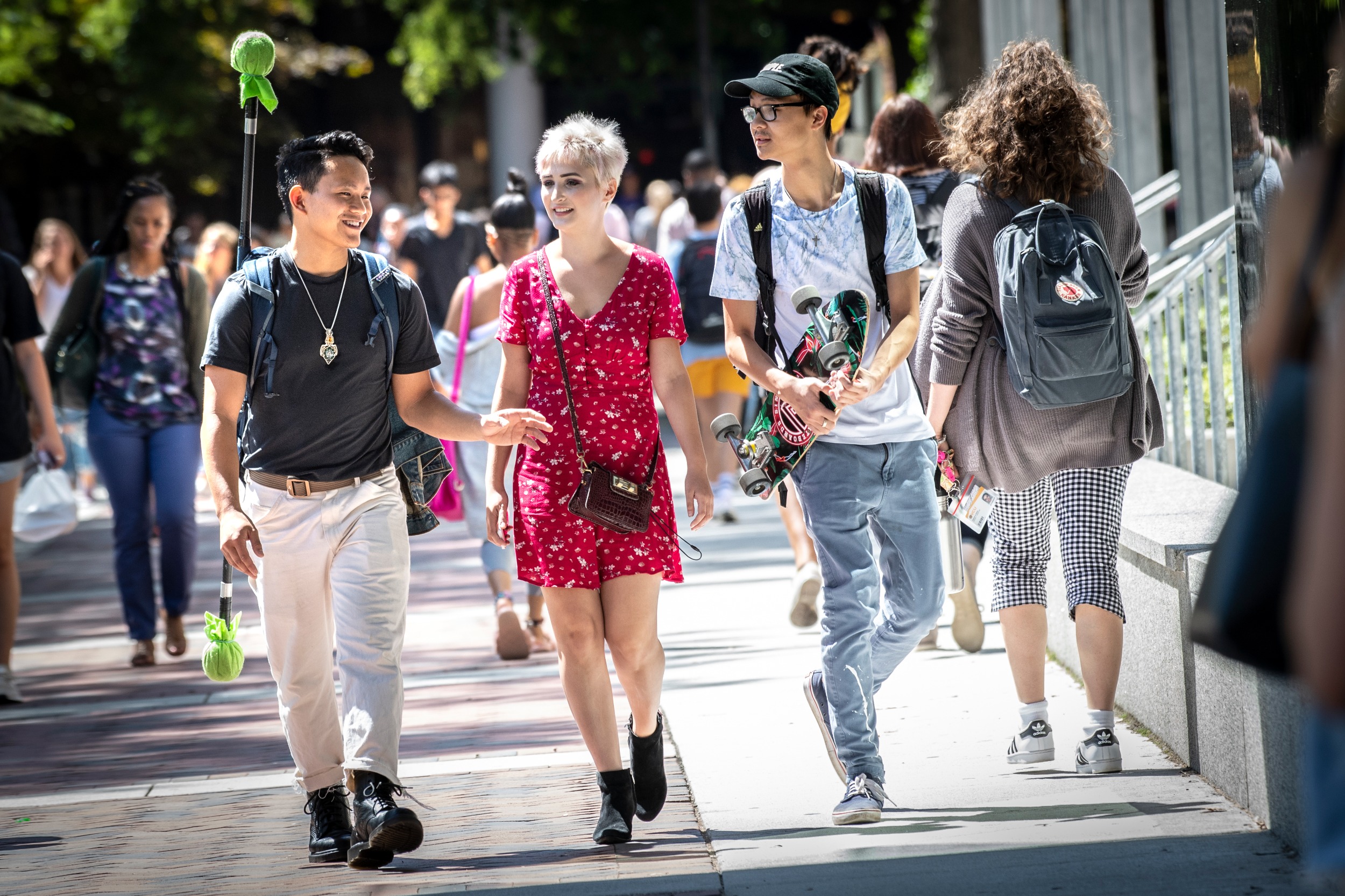

For Faculty & Staff
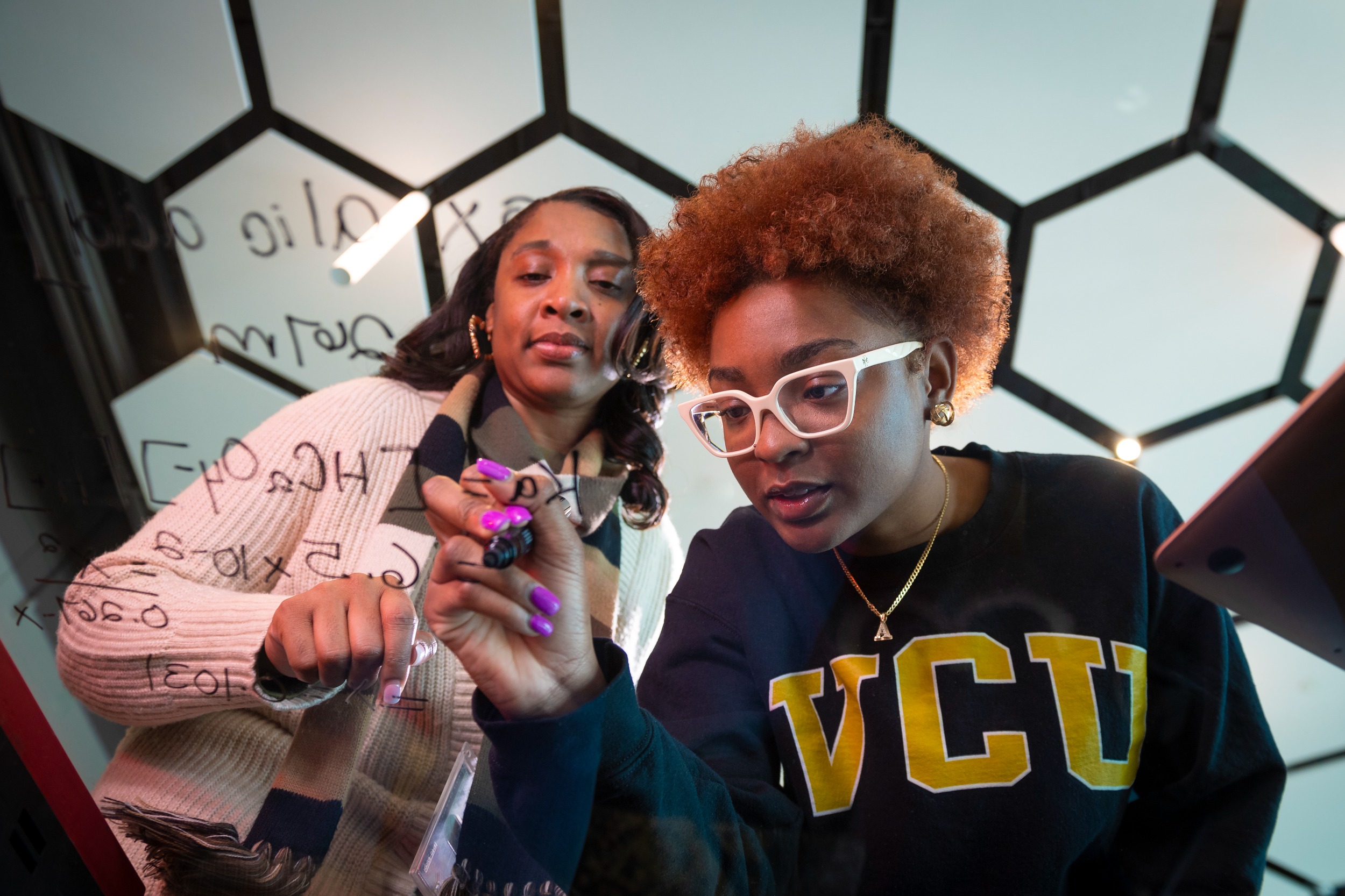

Emerging Researchers Academy
Join an upcoming workshop designed for undergraduate researchers and those who are interested in participating in mentored research projects.
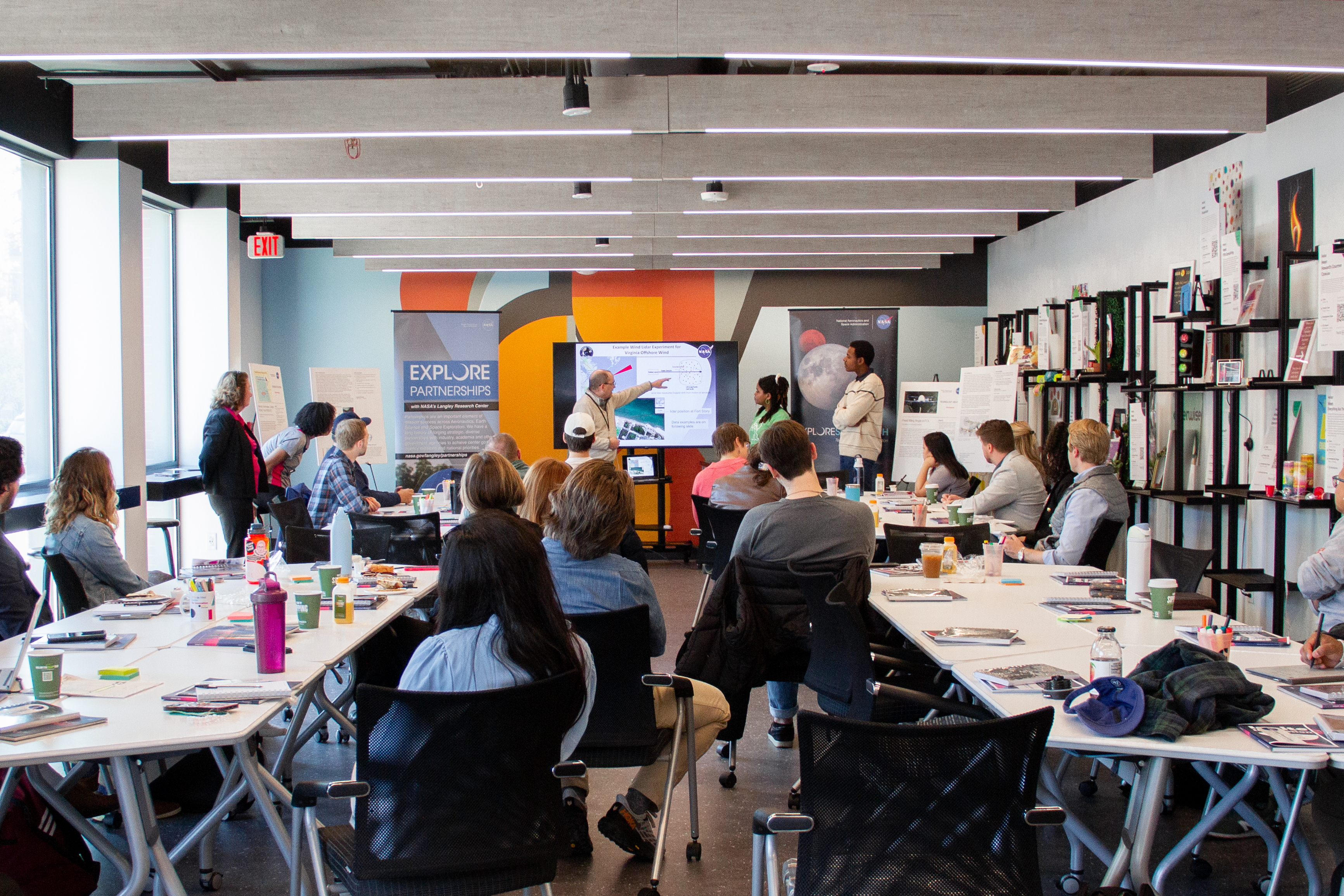

Annual Research Symposiums
Each year, students are in the spotlight as they present their research at the annual Graduate Student Research Symposium Poster Symposium for Undergraduate Research.
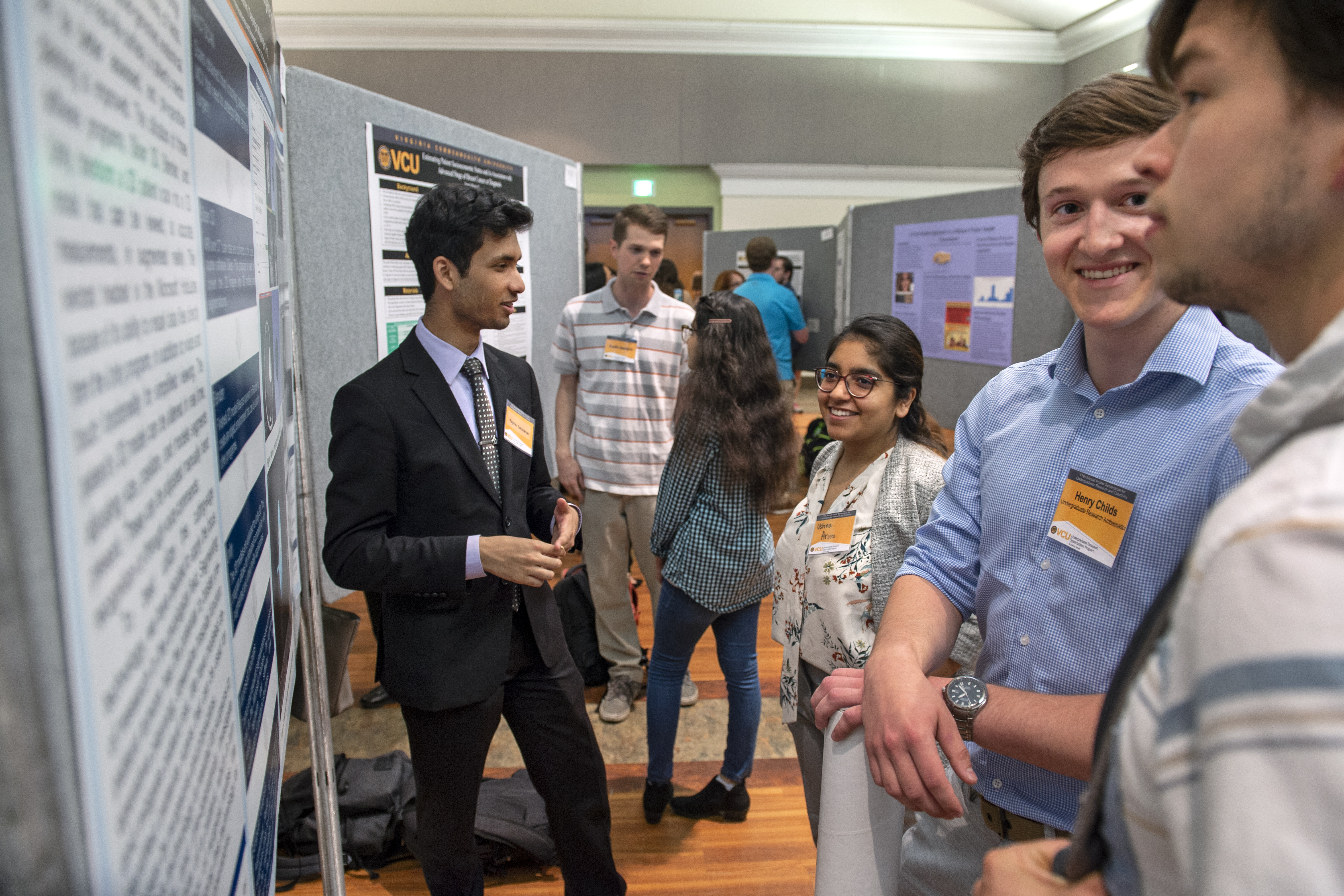

National Conference on Undergraduate Research (NCUR)
In partnership with VCU, the National Conference on Undergraduate Research (NCUR) will take place at the Greater Richmond Convention Center April 13-15, 2026. NCUR is dedicated to promoting undergraduate research, scholarship and creative activity in all fields of study by sponsoring an annual conference for students. Unlike meetings of academic professional organizations, this gathering of student scholars welcomes presenters from all institutions of higher learning and from all disciplines.
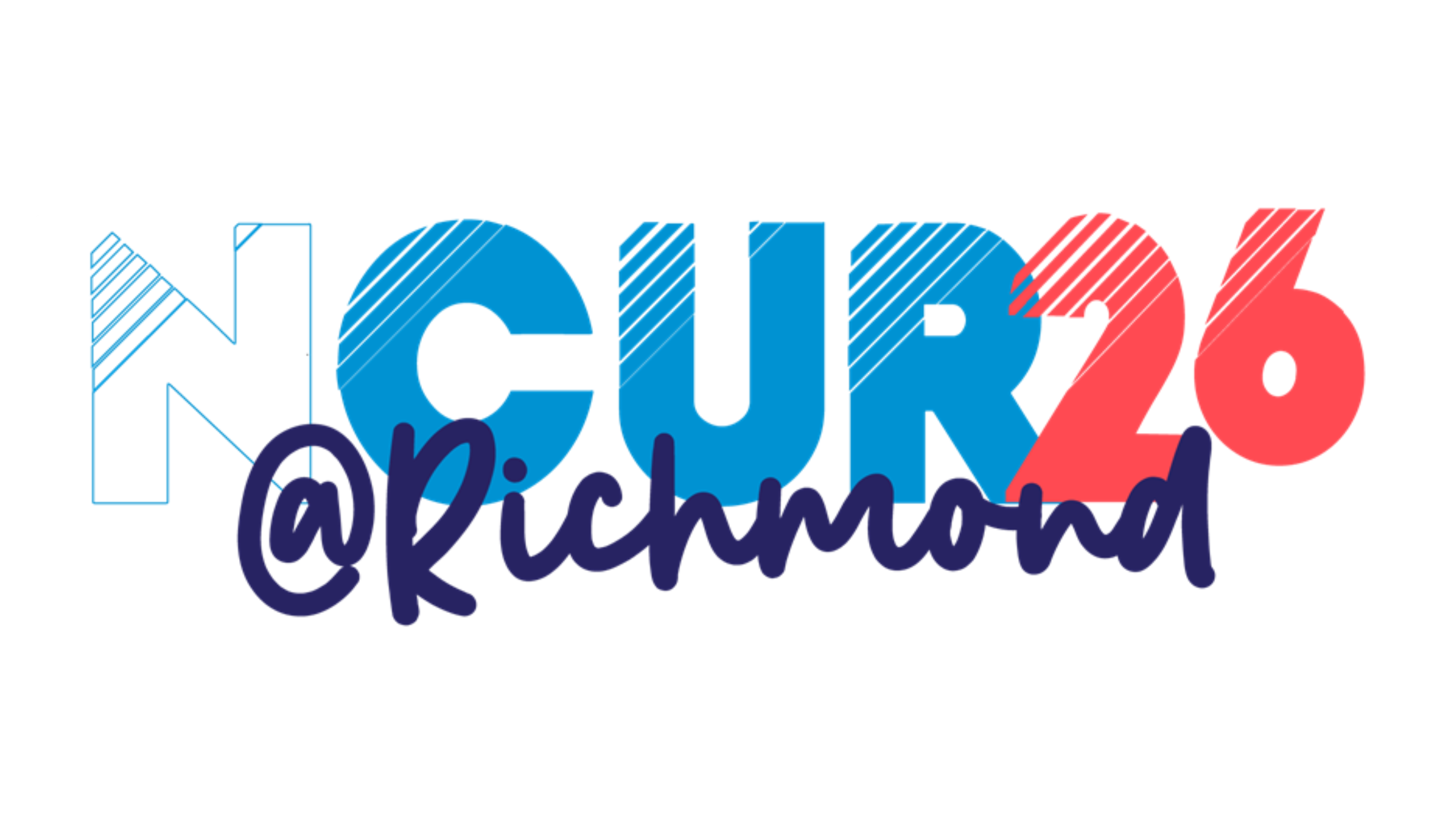

Students Talk Research
Three pairs of VCU undergraduates chat about their research projects, which cover a range of topics from oral hygiene education to a disappearing Chinese embroidery technique. Despite their differing interests, one thing ties them all together: for these students, research is about more than cracking a book or turning in a final paper – it’s about making a difference and connecting with people.
Undergraduate Research News
Celebrating Our Undergraduate Research Fellows
This year, VCU undergraduates and their faculty mentors were awarded funding from the Office of Undergraduate Research and Creative Inquiry to collaborate on research and creative projects throughout the summer and academic year.
Thank you to our campus partners for supporting student discovery—and congratulations to our Fellows and their dedicated mentors!
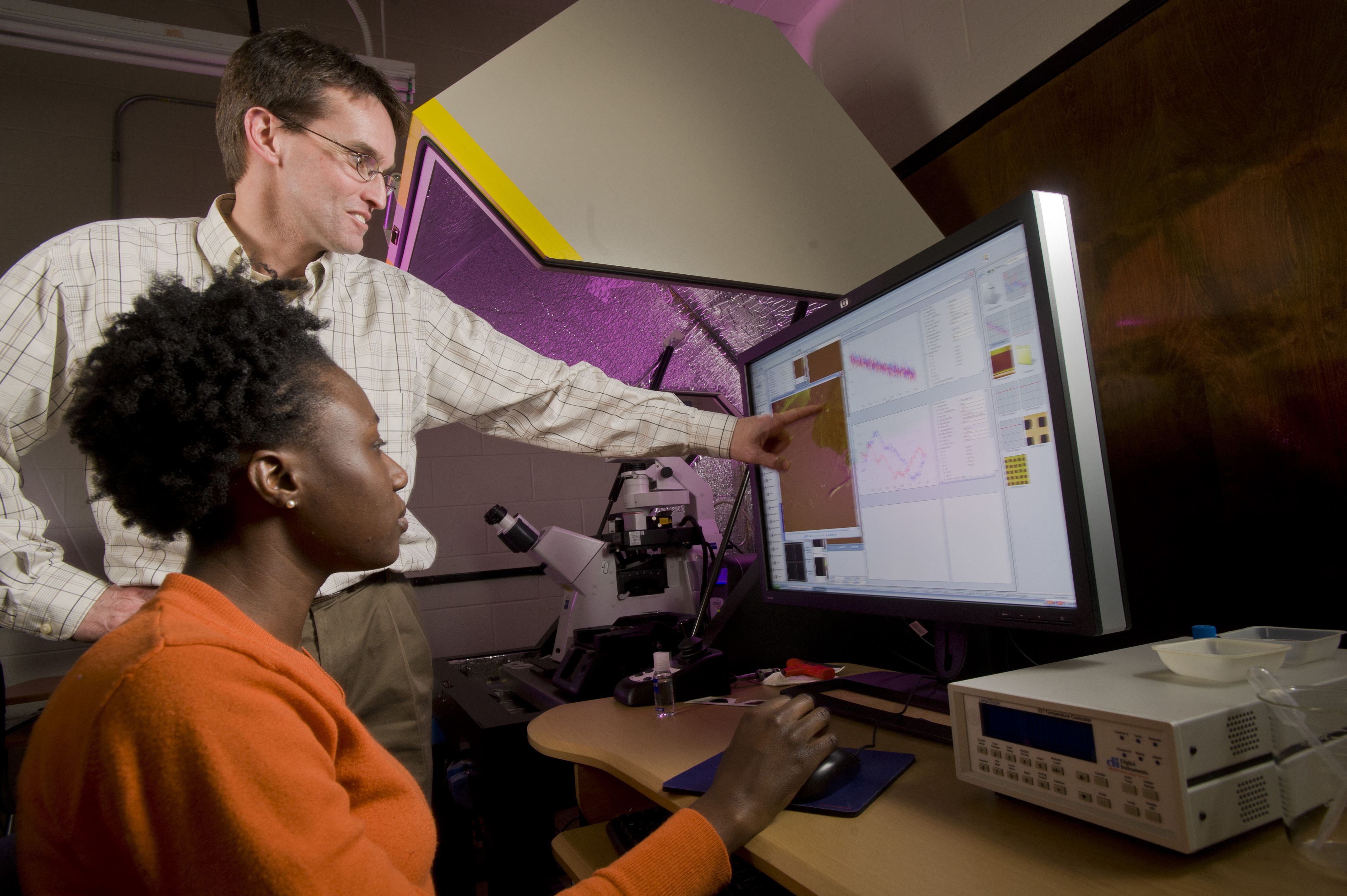

Arts education major embraces research through an artistic lens
Kate Ogden blends her interests in teaching, science and art by developing a K-16 curricular resource that explores the intersection of AI and photography.
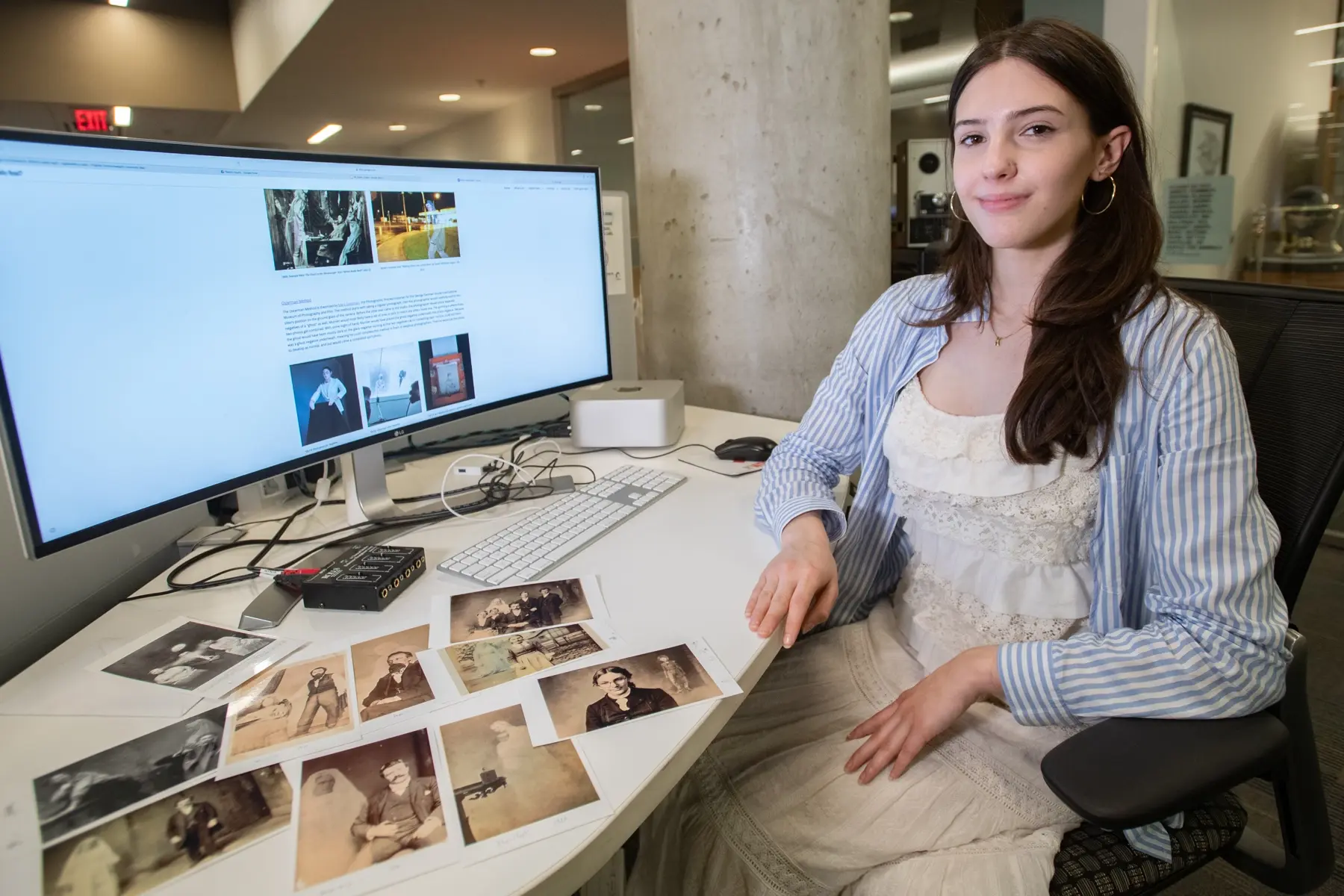

Inspired in his youth, undergraduate Jeremy Lopez goes with the flow in engineering
The third-year student has been a valuable researcher in a mechanical engineering lab whose work focuses on energy technology.
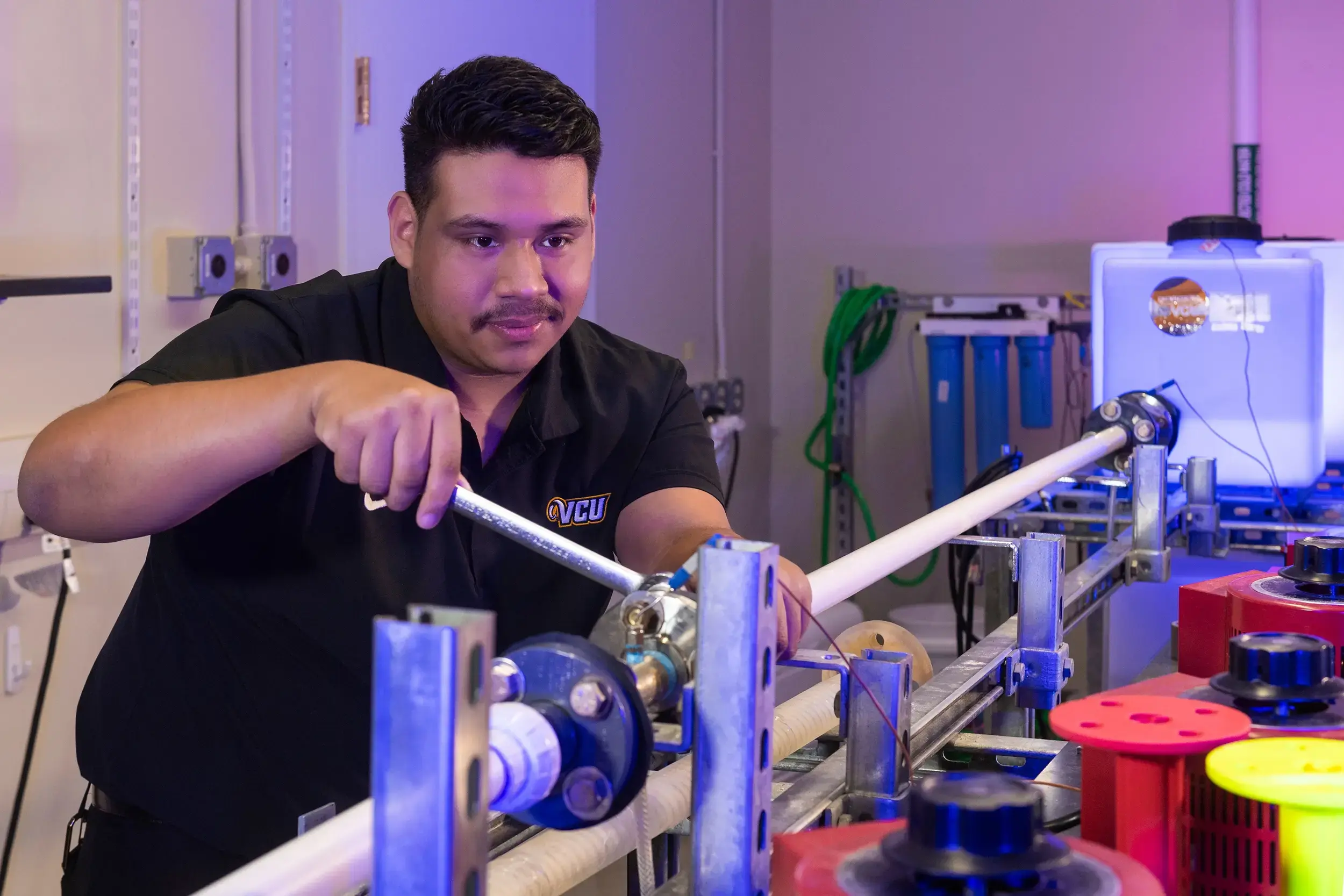

America’s smallest falcon captures the interest and insight of undergraduate researcher Kaylynn Breland
The environmental studies student embraces field work that has taken her straight into the nest.
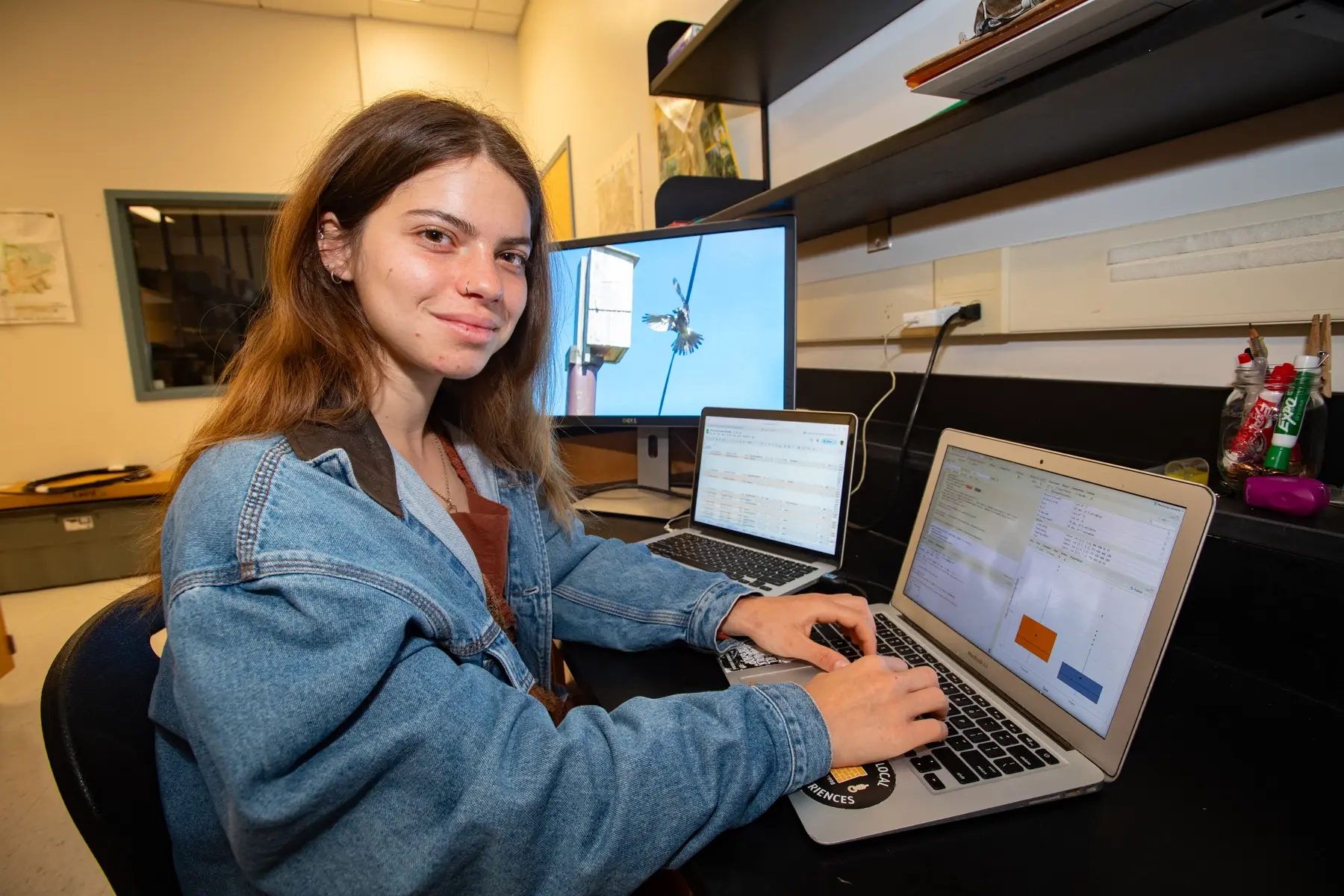

Through the eye of a young filmmaker, a journey into the heart
VCU cinema major Jacob Simmons uses undergraduate research grant to explore how emotion affects not just movie audiences but the creators themselves.
.png)
.png)